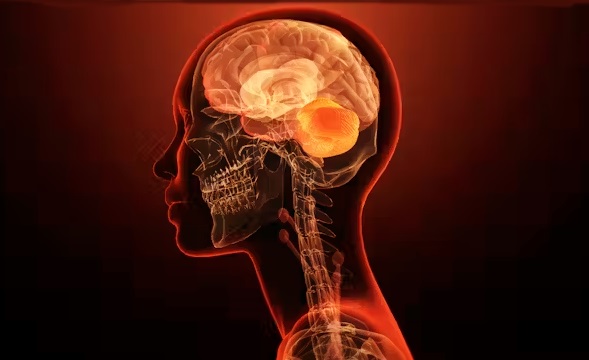Gut Microbes and Brain Steroids Could Hold the Key to Treating Brain Inflammation
Nikhil Prasad Fact checked by:Thailand Medical News Team Jul 22, 2025 6 months, 3 days, 1 hour, 48 minutes ago
Thailand Medical News: Gut and Brain Are More Connected Than We Thought
Scientists from the University of Florence in Italy have uncovered groundbreaking insights into how gut microbes and natural brain steroids work together to protect the brain from inflammation and degeneration. In recent years, research has confirmed that the gut and brain constantly communicate through what's called the “gut–brain axis.” But this new discovery takes it a step further.
 Gut Microbes and Brain Steroids Could Hold the Key to Treating Brain Inflammation
Gut Microbes and Brain Steroids Could Hold the Key to Treating Brain Inflammation
This
Thailand Medical News report highlights how tiny chemical messengers in the brain called neurosteroids, and the vast population of microbes living in our intestines (known as the gut microbiota), are not just linked—they may directly influence each other and offer powerful new treatment paths for brain diseases.
Neurosteroids and Gut Microbes Work Together
Neurosteroids are special brain chemicals made from cholesterol. These compounds help calm the brain, reduce stress, and protect brain cells. Some examples include allopregnanolone (ALLO), DHEA, and progesterone. These chemicals can improve mood, reduce inflammation, and even help the brain heal after injury.
Meanwhile, gut microbes are known to release helpful compounds too. They produce short-chain fatty acids (SCFAs) like butyrate, which can cross into the bloodstream and help reduce brain inflammation. These compounds can also strengthen the blood–brain barrier—the protective shield around the brain—and support healthy brain function.
Fascinatingly, researchers found that certain gut bacteria can actually influence how neurosteroids are made in the body. Some bacteria even convert stress-related hormones into calming neurosteroids, such as allopregnanolone, which is currently used to treat postpartum depression. This means gut bacteria might be helping the brain produce its own natural medicines.
Promising Natural Treatments for Brain Diseases
The study also explored how treatments involving probiotics (good bacteria) and prebiotics (foods that feed those bacteria) can improve brain health. Some probiotic strains, like Lactobacillus and Bifidobacterium, help produce GABA—a calming brain chemical—and may reduce symptoms of depression and anxiety. Prebiotics such as inulin and human milk oligosaccharides have also shown promise in boosting these brain-friendly microbes.
Additionally, researchers found that synthetic neurosteroid drugs like Ganaxolone and Brexanolone, which mimic natural neurosteroids, have already shown success in treating epilepsy and depression. However, natural methods like adjusting gut bacteria through diet or supplements may offer safer and longer-lasting benefits.
A New Frontier in Brain Therapy
In conclusion, this new research paints an exciting picture. By understanding how gut bacter
ia and neurosteroids influence each other, we could develop safer, more natural treatments for brain diseases like Alzheimer’s, multiple sclerosis, and depression. Rather than just treating symptoms, targeting this powerful gut–brain connection may help fix the root causes of brain inflammation. With more clinical studies, scientists hope to turn these discoveries into effective, personalized therapies that improve mental and neurological health in a whole new way.
The study findings were published in the peer reviewed International Journal of Molecular Sciences
https://www.mdpi.com/1422-0067/26/14/7023
For the latest on Neuroinflammation, keep on logging to
Thailand Medical News.
Read Also:
https://www.thailandmedical.news/news/malaysian-scientists-find-that-sars-cov-2-triggers-long-term-brain-damage-via-immune-chaos-and-neuroinflammation
https://www.thailandmedical.news/news/covid-19-induced-neuroinflammation-follows-a-different-pathological-course-than-traditional-neurodegenerative-diseases
https://www.thailandmedical.news/news/phytochemicals-nobiletin-and-eriodictyol-can-help-suppress-neuroinflammation-caused-by-sars-cov-2-spike-protein
